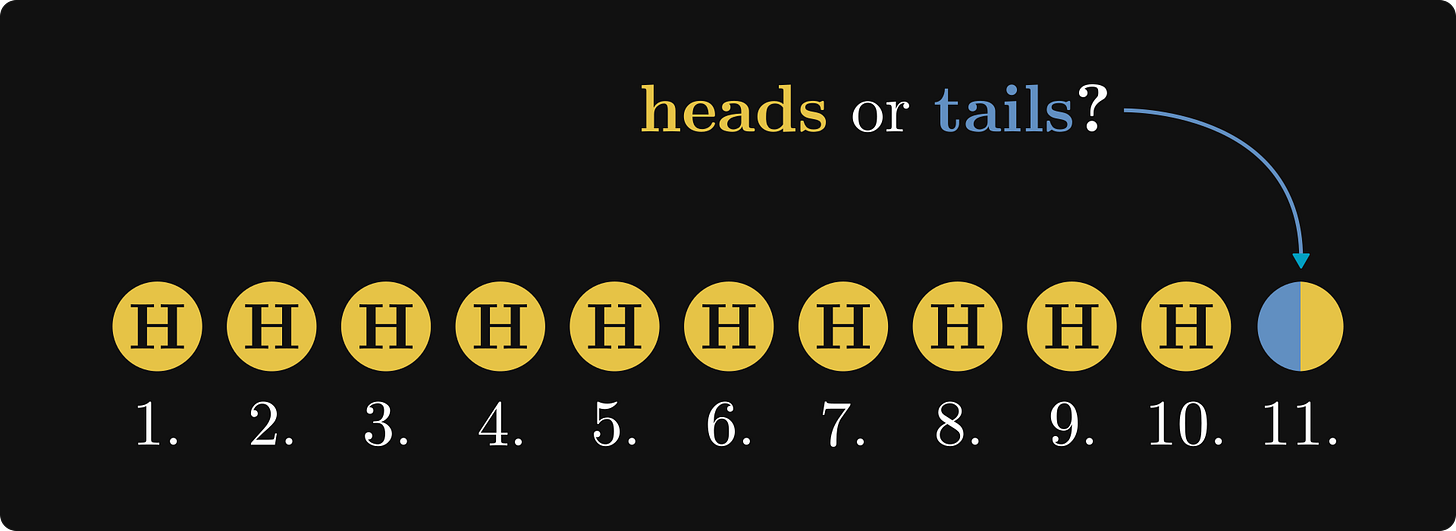Your Brain is Wrong About Probability
The universe doesn't remember your last coin toss
I precisely remember the first time probability finally clicked for me.
During the summer break of my undergrad first year, I had a brief crush on poker, spending most of my days either grinding the online microstakes no-limit Texas hold 'em tables or endlessly consuming poker theory books.
Poker is a beautiful game, and most of the lessons I have learned from it have had a significant impact on my life.
Only fight battles you are favored to win.
Winning one hand is luck. Winning a thousand is skill.
Losing doesn't mean that you made a bad decision. Winning doesn't mean that you made a good one.
To this day, I explain the concept of expected value with pot odds in poker. Someday I'll write a massive essay on the life-changing ideas that my short stint at the online casinos taught me, but right now, I want to talk to you about probability.
Let me tell you: our intuition about probability is fundamentally flawed, resulting in mostly comical, sometimes tragic situations.
This post is about three of them:
that misunderstanding probability can lead us to financial ruin,
that probabilities don't scale linearly,
and what can happen will happen eventually.
Speaking of poker: gamblers on a losing streak tend to keep on playing, as they perceive that their bad luck should increase the chance of winning.
Here's why this is wrong.
The gambler’s ruin
Let's play a simple game!
The dealer tosses a fair coin. If it comes up tails, you win $1. Heads, you lose $1.
Suppose that you lost ten times in a row. Does it increase the likelihood of winning the next round? Take your time to think it through; I'll even leave a couple of blank lines to keep you from spoilers.
.
.
.



